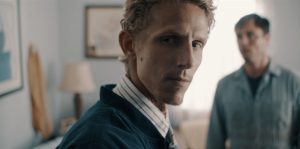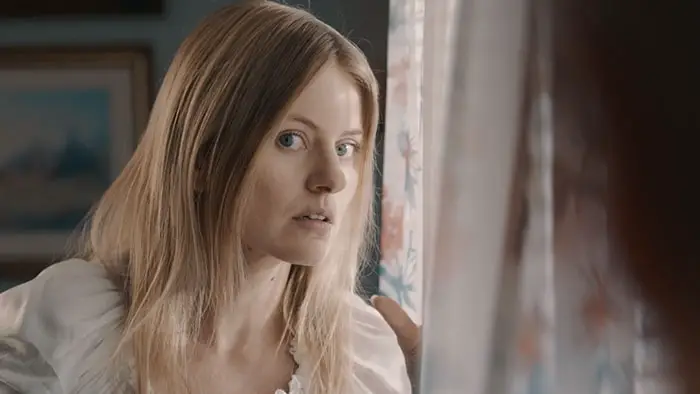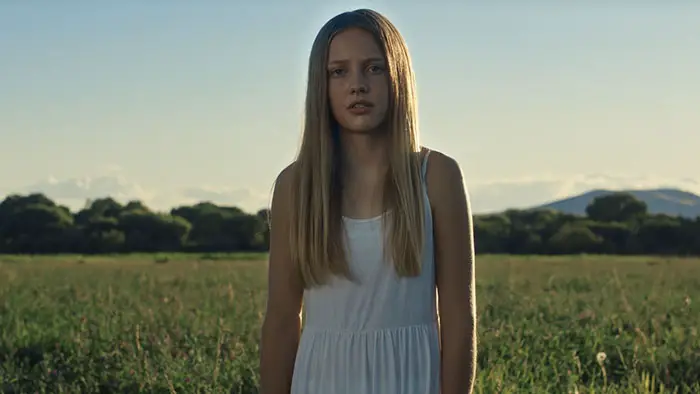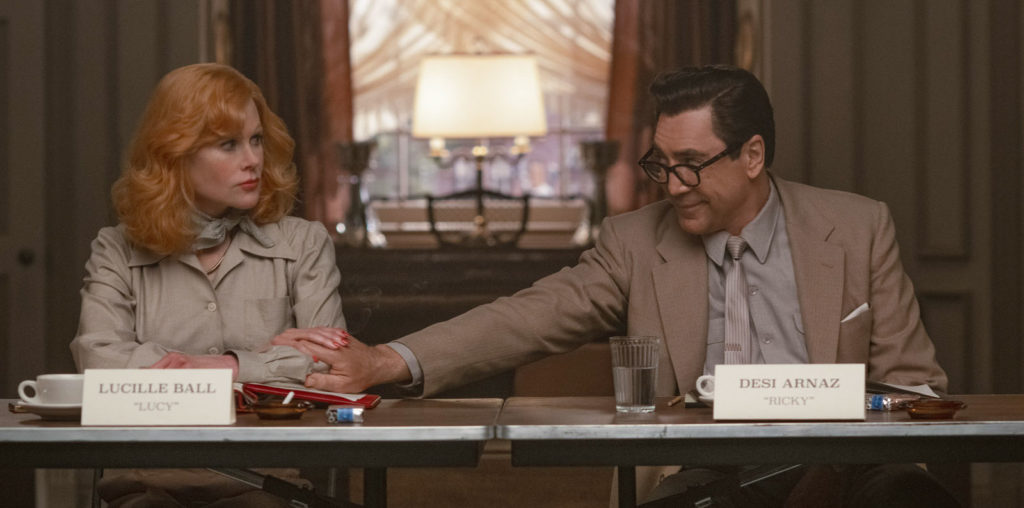
There’s the business side of business, where everything is transactional and devoid of emotion. Then there’s the human side, which is loaded with all these juice emotions. The dichotomy between these emotions and dispassionate business is explored in Andy Kastelic’s short film, Torchlight.
The short starts with young childhood friends, Charlie (Andrew Olson) and Viola (Ava Wagenman), playing in an open field. Next, Charlie is helping his uncle sew up an open wound after a fight. Charlie idolizes his Uncle Terry (Jack Forcinito) and takes to heart his business philosophy. “He better payout or I’m taking him for all he’s worth,” he warns the young Charlie.
Cut to today, and older Charlie (Andy Kastelic) is ordered by Terry to collect from Viola and her brother Samuel (Gennaro Leo). They owe Terry a debt for funeral services for their late father. Rather than go to a collection service, Terry would rather collect with a gang of thugs and muscle. Charlie finds himself on Viola and Samuel’s doorstep, urging Samuel to pay the debt that he clearly cannot. Then Terry and his goons arrive.

“’He better payout or I’m taking him for all he’s worth,’ he warns the young Charlie.”
What I like about the story is that Kastelic places his protagonist (played by himself) in a real-life catch-22 situation. He backs his character into a corner and then has him fight his way out. As Terry says, “he’s not the bad guy.” He offered funeral services to Viola and Samuel in good faith and delivered on his end. For the siblings, they made a promise to him that they had every intention of fulfilling, but can’t. Now Terry has to figure out a solution, or there will be blood.
Where Torchlight succeeds is in creating and then escalating that conflict in Charlie’s mind leading to the final bold decision in the end. The situation forces Charlie to debate the issue in his mind and come to a conclusion without ever having to talk about it or, worse, go into some cliched monologue—show, don’t tell.
Torchlight is a wonderful short that tells an authentic human story and connects you instantly with the lead protagonist. You understand his past using imagery instead of exposition, allowing you to fill in the gaps with your imagination. You appreciate his final decision and are right there with Charlie and the consequences of that decision. Kastelic effectively uses the advantages of short films to tell his story.

"…tells an authentic human story and connects you instantly with the lead protagonist."

